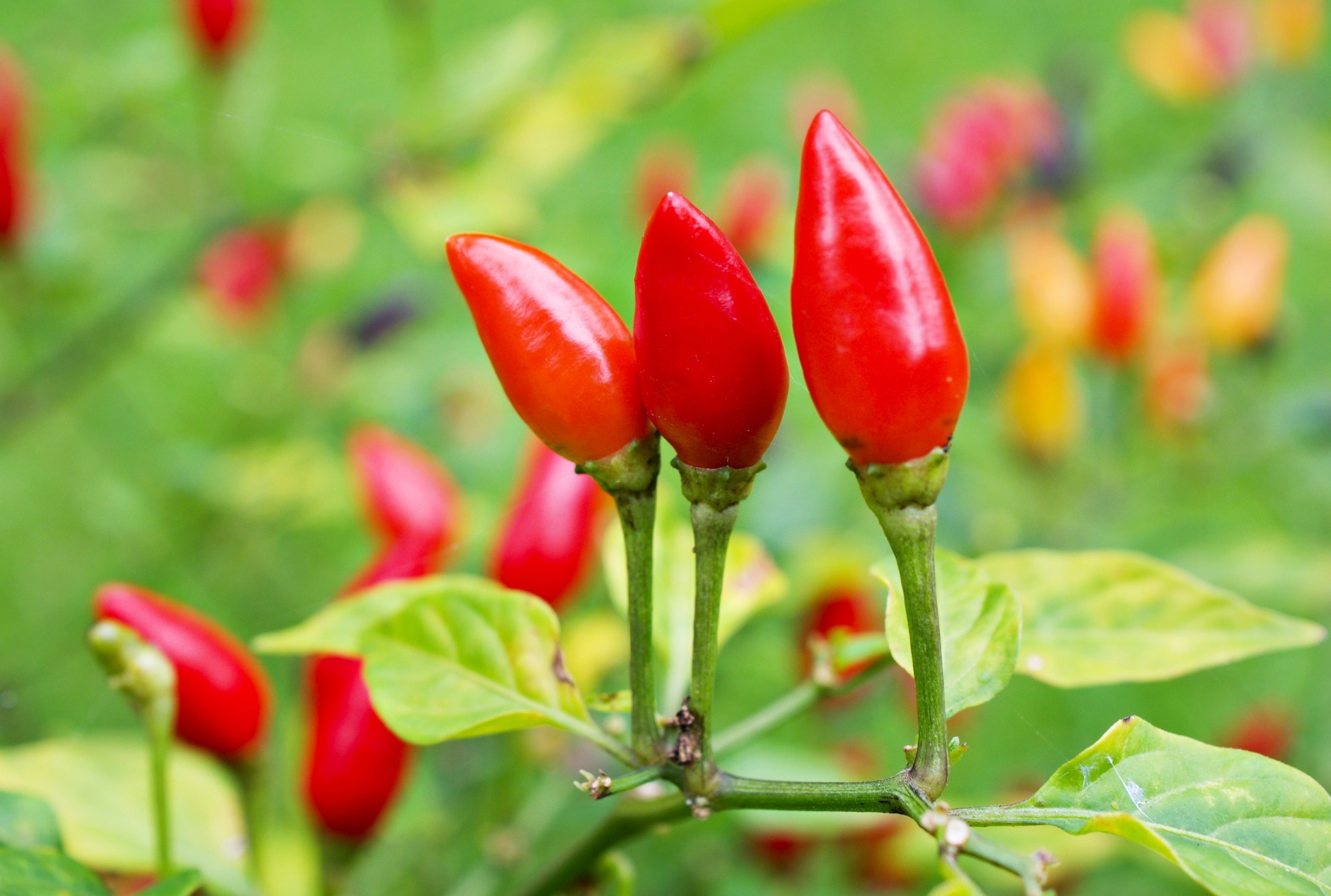In a recent study published in the journal Frontiers in Nutrition, a team of researchers in Mexico reviewed the numerous metabolites, such as capsaicinoids, carotenoids, and flavonoids, in piquin chili and the antioxidant properties that highlight its nutraceutical potential.
 Mini Review: Piquin chili, a wild spice: natural variation in nutraceutical contents. Image Credit: Little daisy / Shutterstock
Mini Review: Piquin chili, a wild spice: natural variation in nutraceutical contents. Image Credit: Little daisy / Shutterstock
Plant nutraceutical sources
Phytochemical compounds such as alkaloids, phenolics, glycosides, polysaccharides, peptides, and terpenoids are biosynthesized in plants for various physiological and ecological functions. These compounds have colors, flavors, aromas, and nutraceutical properties that are potentially useful. Various cultures worldwide consume plants with nutraceutical properties, highlighting the need for adequate management and conservation measures for these natural resources. Furthermore, cultivating these plants could alter the composition and content of nutraceutical compounds from those found in the same plants obtained from wild sources.
Therefore, understanding the optimal growth conditions is essential to recreate the natural processes that promote the highest production of nutraceutical compounds. A comprehensive evaluation of traditional practices, management of natural resources, genetic improvement techniques, innovative industrial processing methods, sustainable forestry production practices, and public policies on the use of such nutraceutical compounds is also imperative. Traditional knowledge passed on through generations, especially in rural, indigenous, and native communities, is vital to understanding the nutraceutical benefits of wild plants and their phenological and productive cycles.
Given that environmental conditions impact not only the growth of these plants but also the functional and organoleptic properties, variations in cultivated plants will directly impact the consumer. One such plant is the piquin chili, or Capsicum annuum var. glabriusculum, grown from the southern United States to Central America. The high carotenoid, phenolic, alkaloid, and volatile compound content of this chili makes it a valuable potential nutraceutical resource.
Nutraceutical compounds: Carotenoids
Carotenoids in chili peppers contribute to the yellow and red coloration as the fruit matures, and they are also phytohormone precursors. Genetic factors and environmental conditions play significant roles in carotenoid accumulation in chili peppers. Carotenoids are also important antioxidants, making them essential nutraceuticals for humans. It is recommended that piquin chilis be consumed in the mature stages when they have the highest carotenoid content and, consequently, the highest antioxidant activity.
The review discussed various factors that can affect the carotenoid content of piquin chilies, such as shading conditions in which the fruits are allowed to mature. The carotenoid content of piquin chilies was found to be highest when the fruits were allowed to ripen or mature in open fields with natural light instead of ripening them in shaded regions.
Nutraceutical compounds: Capsaicinoids
Capsaicinoids are alkaloids synthesized in fruits' placental and pericarp tissue from various chili species. While they serve to protect plants against phytopathogens and herbivores, humans benefit from their antiangiogenic, thermogenic, antineoplastic, antitumor, and antimicrobial properties.
Although the capsaicinoid content of piquin chilies was found to be similar for immature and mature fruit, it has been found to differ based on growing conditions. The review discussed various studies that reported that the levels of dihydrocapsaicin and capsaicin were highest in chilies grown in greenhouse conditions.
Nutraceutical compounds: Volatile compounds
The volatile compounds in chili are responsible for its flavor, aroma, and organoleptic properties, which determine its use. Capsicum species are known to contain various volatile compounds, such as organic acids, aldehydes, esters, compounds containing nitrogen, terpenoids, alcohols, hydrocarbons, ketones, and phenolics.
The immature green fruit of piquin chili is known to have an herbal, fruity aroma, which can be attributed to the complex array of chemicals in the fruit. The concentration of volatile chemicals changes as the fruits of the piquin chili ripen. The level of esters decreases while that of various other compounds increases, changing the aromatic and flavor profiles. Based on the flavor and aromatic preferences of the consumers, the fruits are consumed in different stages of ripening.
Conclusions
To summarize, the present review examined the various knowledge requirements for cultivating nutraceutical plants such as piquin chili in conditions that optimize their nutraceutical content. They also discussed the genetic and environmental factors that impact the concentration of nutraceutical compounds in these cultivated plants.
Additionally, the researchers examined various studies that investigated the nutraceutical properties of piquin chili, such as carotenoids, capsaicinoids, and volatile compounds that contribute to not only its aroma and flavor but also health benefits such as antioxidant, antimicrobial, antitumor, and antineoplastic activity.
Journal reference:
- Pérez-Ramírez R, Moreno-Ramírez YR, Ruiz-De-La-Cruz G, Juárez-Aragón MC, Aguirre-Mancilla CL, Niño-García N and Torres-Castillo JA (2024) Piquin chili, a wild spice: natural variation in nutraceutical contents. Frontiers in Nutrition. 11:1360299. DOI: 10.3389/fnut.2024.1360299, https://www.frontiersin.org/articles/10.3389/fnut.2024.1360299/full